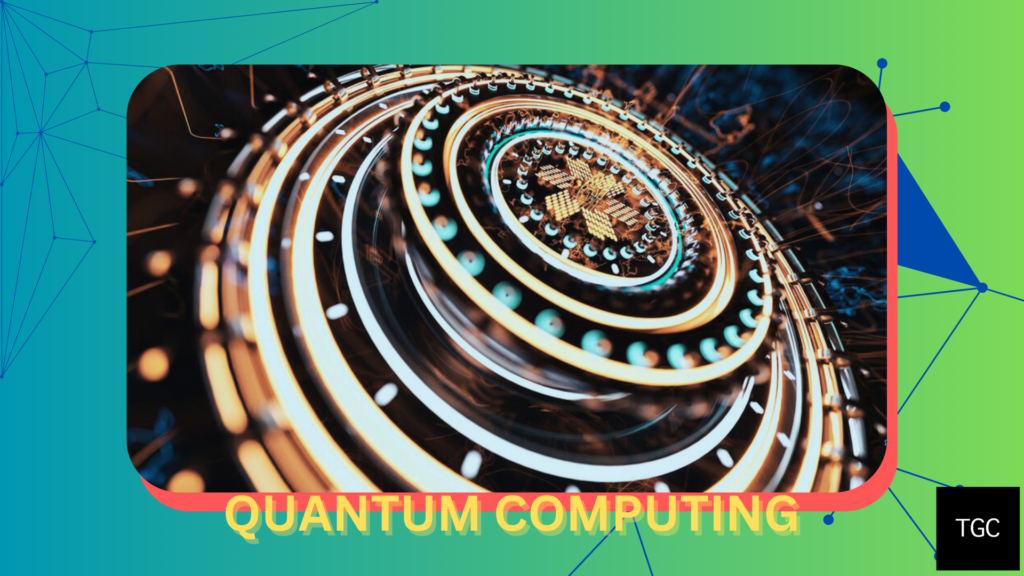Quantum computing is an ever-evolving field with rapid advancements and groundbreaking achievements. Keeping up with the latest developments is crucial for understanding its growing impact and potential applications.

Latest Breakthroughs and Milestones
Recent breakthroughs in quantum computing have set the stage for significant advancements. In 2023, researchers at Google announced a major milestone by demonstrating a quantum processor that can perform computations in seconds that would take the world’s fastest supercomputers thousands of years. This achievement, known as “quantum supremacy,” marks a pivotal moment in quantum computing history.
Another significant breakthrough came from IBM, which successfully developed a 127-qubit quantum processor named Eagle. This processor represents a major step forward in scaling up quantum systems, pushing the boundaries of what quantum computers can achieve. IBM’s milestone is a testament to the rapid progress being made in the field.
Key Research Papers and Findings
Several key research papers have highlighted the progress and potential of quantum computing. A notable paper published in Nature by a team of scientists from MIT and Harvard detailed a new quantum algorithm that can solve complex optimization problems more efficiently than classical algorithms. This research opens the door to practical applications in various industries, from logistics to finance.
Another influential paper from the University of Chicago introduced a novel error-correction technique that significantly improves the stability and reliability of quantum computations. This breakthrough addresses one of the biggest challenges in quantum computing, paving the way for more practical and scalable quantum systems.
Achievements by Leading Quantum Computing Companies
The race for quantum computing supremacy is heating up, with several companies making significant strides in this groundbreaking field. Here’s a look at some of the leading players and their recent achievements, providing insights into the future of quantum technology.
IBM and the IBM Q System One
IBM has been a pioneer in quantum computing with its IBM Q System One, the world’s first integrated universal quantum computing system designed for scientific and commercial use. It recently unveiled its 127-qubit processor, Eagle, which marks a significant leap in quantum power and scalability. This development is part of IBM’s ambitious roadmap to build quantum systems with thousands of qubits in the coming years.
Google’s Quantum Supremacy with Sycamore Processor
Google made headlines in 2019 by claiming quantum supremacy with its Sycamore processor, which performed a specific calculation in 200 seconds that would take the world’s fastest supercomputer 10,000 years. This achievement demonstrated the immense potential of quantum computing and positioned Google as a frontrunner in the field. Google continues to push the boundaries with ongoing research and development in quantum algorithms and applications.
Microsoft’s Azure Quantum Platform
Microsoft’s Azure Quantum platform offers a comprehensive approach to quantum computing by integrating quantum solutions into its cloud services. The platform provides access to a variety of quantum processors and simulators, enabling researchers and developers to experiment with quantum algorithms and applications. Microsoft’s hybrid approach, which combines classical and quantum computing, is aimed at solving complex problems more efficiently.
D-Wave Systems and Quantum Annealing
D-Wave Systems specializes in quantum annealing, a type of quantum computing optimized for solving optimization problems. The company’s latest quantum computer, the Advantage, features over 5,000 qubits and offers enhanced performance for specific use cases such as logistics, materials science, and artificial intelligence. D-Wave’s focus on practical applications makes it a key player in the quantum computing landscape.
Rigetti Computing’s Integrated Quantum Systems
Rigetti Computing is known for developing full-stack quantum computing systems that integrate hardware, software, and cloud services. Rigetti’s quantum cloud service, Forest, allows users to run quantum algorithms on its superconducting quantum processors. The company’s commitment to advancing quantum computing technology has positioned it as a leader in providing accessible and scalable quantum solutions.
IonQ’s Trapped-Ion Quantum Computers
IonQ’s approach to quantum computing involves trapped-ion technology, which is known for its stability and precision. The company’s quantum computers are designed to perform a wide range of computations with high fidelity. IonQ recently announced a new quantum computer with a record-setting number of connected qubits, demonstrating its progress in scaling up quantum systems for practical use.
Honeywell’s Milestones in Qubit Fidelity
Honeywell has achieved significant milestones in qubit fidelity, making its quantum computers some of the most accurate in the industry. Honeywell’s 10-qubit quantum computer leverages trapped-ion technology, providing exceptional performance for various quantum algorithms. The company’s advancements contribute to the reliability and scalability of quantum computing systems.
Alibaba’s DAMO Academy in China
Alibaba’s DAMO Academy is leading quantum computing research and development in China. The academy focuses on quantum algorithms, quantum communication, and quantum cryptography. Alibaba’s investment in quantum technology aims to position China as a global leader in this critical field, with significant implications for cybersecurity and data encryption.
Intel’s Quantum Processors and Research Initiatives
Intel is actively developing quantum processors and investing in quantum research through its Intel Labs. The company’s focus on silicon-based qubits and cryogenic control technology aims to make quantum computing more practical and scalable. Intel’s efforts in quantum hardware innovation are crucial for the future development of reliable and efficient quantum systems.
Quantum Computing Inc.’s Qatalyst Platform
Quantum Computing Inc. (QCI) is dedicated to making quantum computing accessible for commercial use through its Qatalyst platform. Qatalyst allows users to solve complex optimization problems without needing deep quantum expertise. QCI’s focus on user-friendly quantum solutions helps bridge the gap between theoretical research and practical applications.
These leading companies are at the forefront of quantum computing, each contributing unique advancements and solutions to the field. Their efforts are driving the development of quantum technology, promising to transform industries and solve some of the world’s most challenging problems. Staying updated on their latest achievements and innovations is crucial for understanding the future trajectory of quantum computing.
Future Outlook: The Road Ahead for Quantum Computing
Quantum computing is poised to revolutionize multiple industries with its unparalleled computational power. As we look ahead, several trends, timelines, and potential applications highlight the road to widespread quantum adoption.

Future Trends in Quantum Computing
Several emerging trends will shape the future of quantum computing:
Advances in Quantum Hardware:
Continued development of more stable and scalable qubits will drive significant improvements in quantum hardware. Innovations in superconducting qubits, trapped ions, and topological qubits are expected to enhance performance and reliability.
Quantum Cloud Services:
The proliferation of quantum cloud services will make quantum computing more accessible to businesses and researchers. Companies like IBM, Google, and Microsoft are expanding their quantum cloud platforms, allowing users to experiment with quantum algorithms remotely.
Hybrid Quantum-Classical Systems:
Integrating quantum processors with classical computers will enable hybrid systems capable of solving complex problems more efficiently. These systems will leverage the strengths of both classical and quantum computing.
Quantum Machine Learning:
The intersection of quantum computing and machine learning will lead to breakthroughs in data analysis, pattern recognition, and optimization. Quantum machine learning algorithms are expected to significantly enhance AI capabilities.
Quantum Cryptography:
As quantum computers become more powerful, quantum cryptography will play a crucial role in securing communications. Quantum key distribution (QKD) and other quantum encryption methods will ensure data security in a quantum future.
Expected Timeline for Practical Quantum Advantage
Achieving practical quantum advantage, where quantum computers outperform classical systems in real-world applications, is a key milestone. While predictions vary, many experts anticipate reaching this point within the next decade. Ongoing advancements in error correction, qubit coherence, and algorithm development will be critical in achieving practical quantum advantage.
Societal Impacts and Potential Applications
Quantum computing has the potential to transform various sectors:
Healthcare:
Quantum computing can revolutionize drug discovery, allowing for the simulation of molecular structures and interactions at an unprecedented scale. This will lead to faster development of new treatments and personalized medicine.
Finance:
In finance, quantum algorithms can optimize trading strategies, risk assessment, and portfolio management. This will result in more efficient and profitable financial operations.
Logistics and Supply Chain:
Quantum computing can optimize complex logistics and supply chain operations, reducing costs and improving efficiency. This will have a significant impact on industries like manufacturing, retail, and transportation.
Energy:
Quantum simulations can enhance the development of new materials for energy storage and generation, leading to more efficient renewable energy solutions. Additionally, quantum optimization can improve energy grid management.
Climate Modeling:
Quantum computing can improve climate models, providing more accurate predictions and helping to develop strategies for mitigating climate change.
Ongoing Challenges and Areas for Future Research
Despite the promising potential, quantum computing faces several challenges:
Error Correction:
Developing effective error correction techniques is crucial for maintaining qubit coherence and ensuring reliable computations. Ongoing research aims to create more robust and scalable error correction methods.
Qubit Scalability:
Scaling up the number of qubits while maintaining their stability and coherence remains a significant challenge. Researchers are exploring various approaches to increase qubit count and connectivity.
Algorithm Development:
Designing efficient quantum algorithms for practical applications is essential. Continued research is needed to develop algorithms that can leverage quantum computing’s full potential.
Infrastructure:
Building the necessary infrastructure to support large-scale quantum computing, including cryogenic systems and error correction hardware, is a critical area of development.
Conclusion: Embracing the Quantum Revolution
Quantum computing represents a paradigm shift in technology with the potential to solve problems that are currently intractable. As advancements continue, businesses and researchers must stay informed and explore the opportunities quantum computing offers.
Summary of Key Points
- Quantum computing leverages quantum mechanics to perform complex calculations.
- Recent advancements include breakthroughs in hardware, algorithms, and applications.
- Leading companies like IBM, Google, and Microsoft are driving the field forward.
- Practical quantum advantage is expected within the next decade.
- Quantum computing will impact healthcare, finance, logistics, energy, and more.
- Challenges include error correction, qubit scalability, and infrastructure development.
Encouragement for Businesses to Explore Quantum Computing
Businesses should start exploring quantum computing now to stay ahead of the curve. By engaging with quantum cloud services, participating in research collaborations, and investing in quantum talent, companies can position themselves to leverage this transformative technology.
Staying Informed and Preparing for the Quantum Future
Staying informed about the latest developments in quantum computing is essential. Businesses and individuals should follow current news, attend industry conferences, and engage with quantum computing communities to remain up-to-date with advancements and opportunities.
By embracing the quantum revolution, we can unlock new possibilities and address some of the world’s most challenging problems. The future of quantum computing is bright, and those who prepare now will lead the way in this exciting new era of technology.
If you are interested in upcoming new technologies and news then you should read our article on How Low-Code/No-Code Development Making App Development Easy, click on the post below:
If you liked this article, share it with your friends who like science and technology. If you want to read more articles and web stories like this, click the link below.








2 Comments